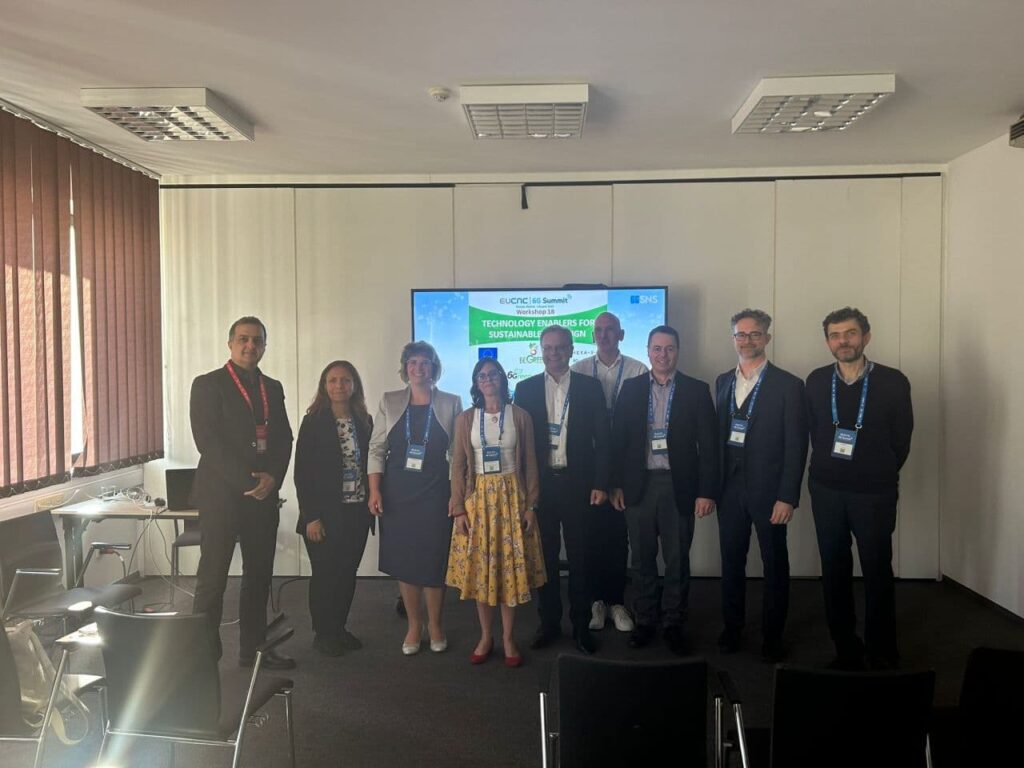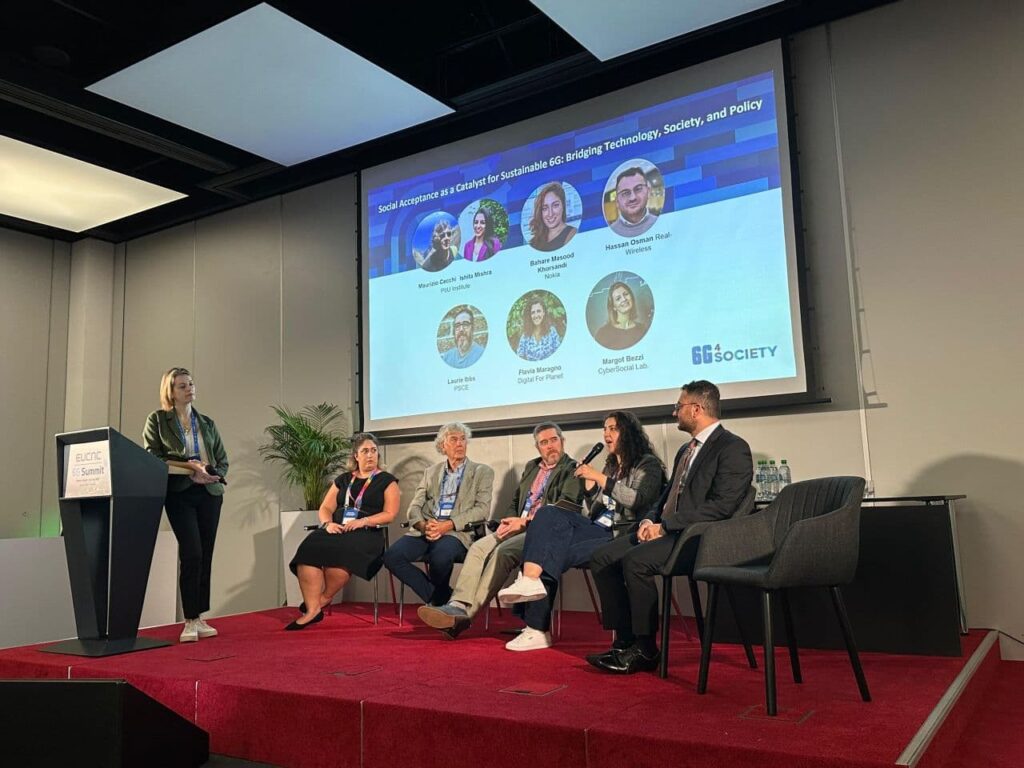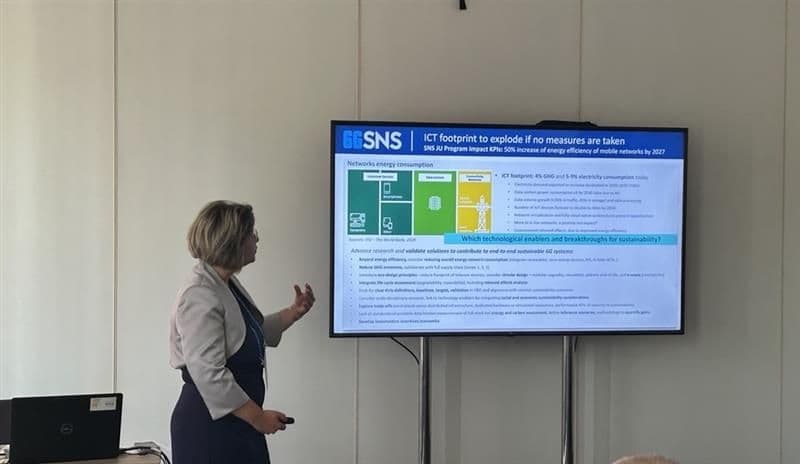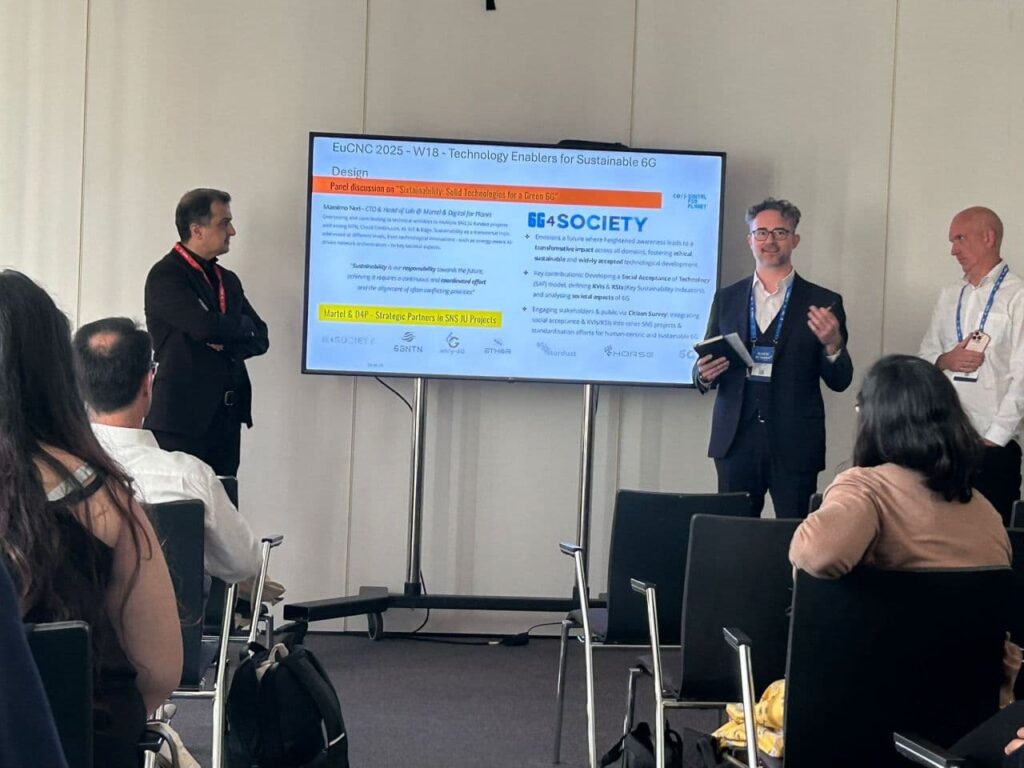EuCNC & 6G Summit 2025 Highlights 6G4Society's Commitment to Sustainability and Social Values
EuCNC & 6G Summit is among the most eagerly awaited telecommunications events of the year. It gathers cutting-edge research and world-known industries and business presenting and discussing the latest research in 5G deployment, 6G exploration and future communications systems. 6G4Society could not miss the event and went to Poznań (Poland) from the 3th to the 6th of June to take part in the 2025’s edition under the motto “Towards the 6G World”. Our Project Coordinator, Monique Calisti (Martel Innovate) and several project partners from Cyber Social Lab., Public Safety Communication Europe, and Digital for Planet participated in a number of sessions to present the project development and lead the conversation on how to embed societal and environmental values into the development of 6G technology.
6G4Society extends its sincere gratitude to all participants, organisers, and partners who made the EuCNC & 6G Summit 2025 in Poznań a resounding success. This year’s summit served as a crucial forum where leading voices from research, policy, and industry converged to collectively shape the future trajectory of 6G.
Over the course of the event, 6G4Society team members participated in three high-level sessions that addressed the social, environmental, and governance dimensions of next-generation connectivity.
Workshop on Technology Enablers for Sustainable 6G Design
Date: 3 June 2025
Speaker: Massimo Neri (Martel Innovate)
6G4Society joined 16 other SNS JU projects and expert contributors from the SNS Sustainability Task Force and 6G-IA Vision Working Group in a collaborative workshop on sustainability enablers for 6G. Topics included energy-efficient design, AI-driven optimisation, and cross-sector collaboration, with discussions reflecting the need for a multi-dimensional approach to sustainability that spans technology, policy, and user engagement.
Special Session 7: Social Acceptance as a Catalyst for Sustainable 6G
Date: 4 June 2025
Speakers: Margot Bezzi (CyberSocial Lab), Massimo Neri (Martel Innovate), Flavia Maragno (Digital 4 Planet)
Organised and chaired by 6G4Society, this session explored how social acceptance can be meaningfully addressed within the development of 6G technologies. Presentations from several SNS JU projects, including 6G4Society, Hexa-X-II, TrialsNet, SUSTAIN-6G, and FIDAL, focused on approaches to understanding public attitudes, integrating public engagement activities, and building trust and transparency into technology development.
Special Session 17: Societal Sustainability Driven by Values – Transforming 6G Through Key Value Indicators
Date: 5 June 2025
Speakers: Massimo Neri (Martel Innovate), Margot Bezzi (CyberSocial Lab)
This session examined the use of Key Value Indicators (KVIs) as a framework to guide the value-driven design of 6G technologies. Co-organised by 6G4Society, the session offered insights into how societal impact can be measured, prioritised, and integrated from the early stages of 6G research.
Key Takeaways from the Sessions: Social Acceptance as a Cornerstone of 6G
Throughout the 6G4Society sessions at the EuCNC & 6G Summit, a common theme emerged: the role of social acceptance as a catalyst for shaping the future of 6G. The discussions underscored that social acceptance is more than a communication effort – it is a vital part of aligning technological design with the needs, values, and expectations of society.
Panelists reflected on how social acceptance can drive a shift in priorities for 6G development, focusing not just on feasibility and business interests, but also on public trust and long‑term benefit. Projects like Hexa‑X‑II and Sustain‑6G demonstrated how early engagement with stakeholders can build trust and foster co‑creation. They advocated for “listening as a practice” – a process that goes beyond treating feedback as a checkbox, using it instead as a compass to guide innovation and illuminate blind spots in technical design.
FIDAL emphasised that social acceptance is deeply tied to purpose: knowing why a technology is being developed is central to making it relevant and trusted. TrialsNet showed how multidisciplinary collaboration can help bridge qualitative and quantitative approaches, linking Key Value Indicators (KVIs) to Key Performance Indicators (KPIs) and making abstract concepts like “values” actionable and measurable.
Throughout the discussion, a tension emerged between performance‑driven metrics and people‑centred approaches. Should KVIs be standardised across projects, or tailored to specific contexts? The consensus was clear: effective value measurement must connect directly with stakeholders’ priorities and real‑world needs, blending qualitative and quantitative methods to enable a richer understanding of value across the 6G ecosystem.
These insights point towards an evolving approach for the role of KVIs in future connectivity projects – one that embraces diversity, context, and the nuanced nature of value itself. Together, they reaffirmed the 6G4Society mission: putting people and society at the heart of technological progress.






